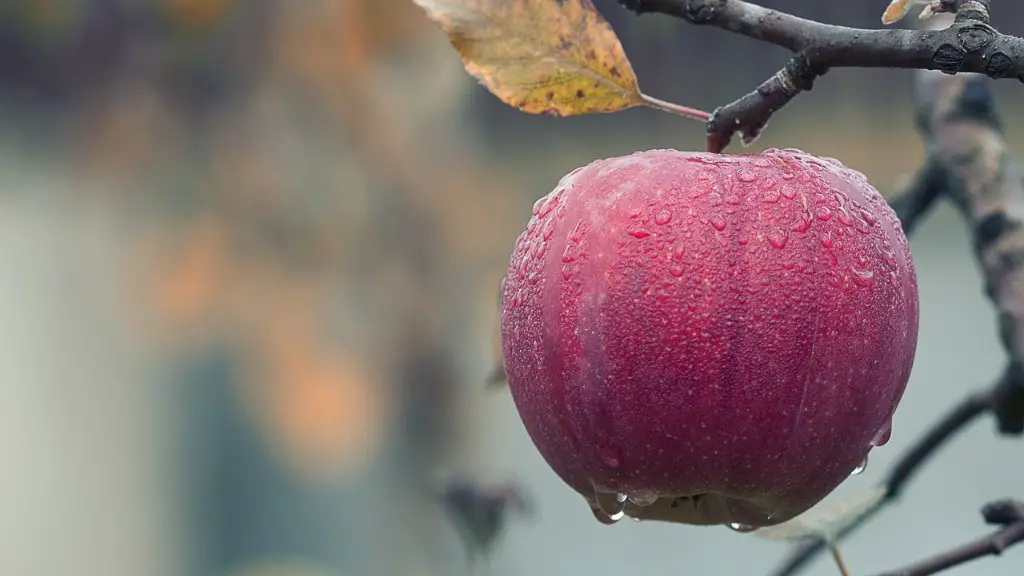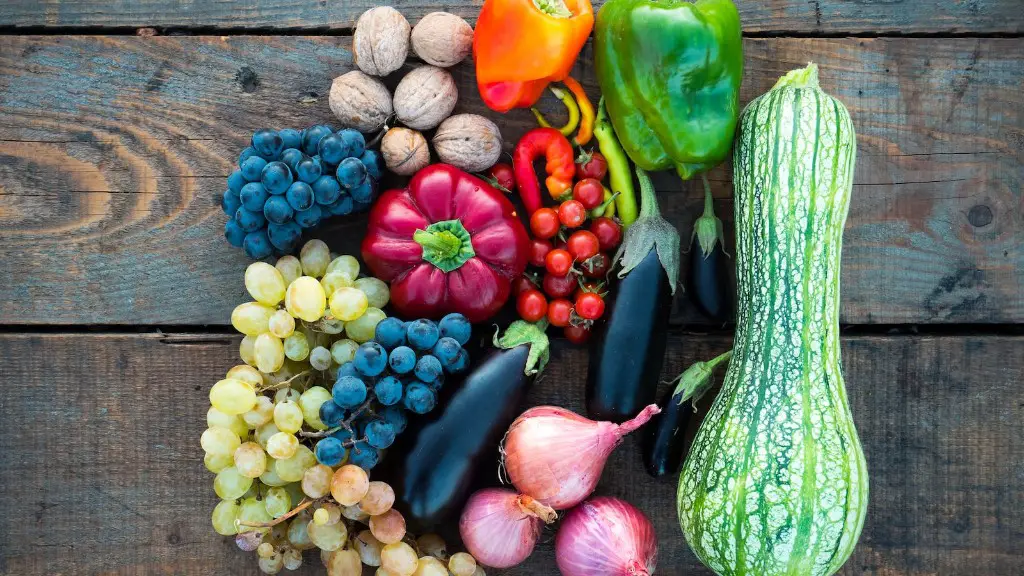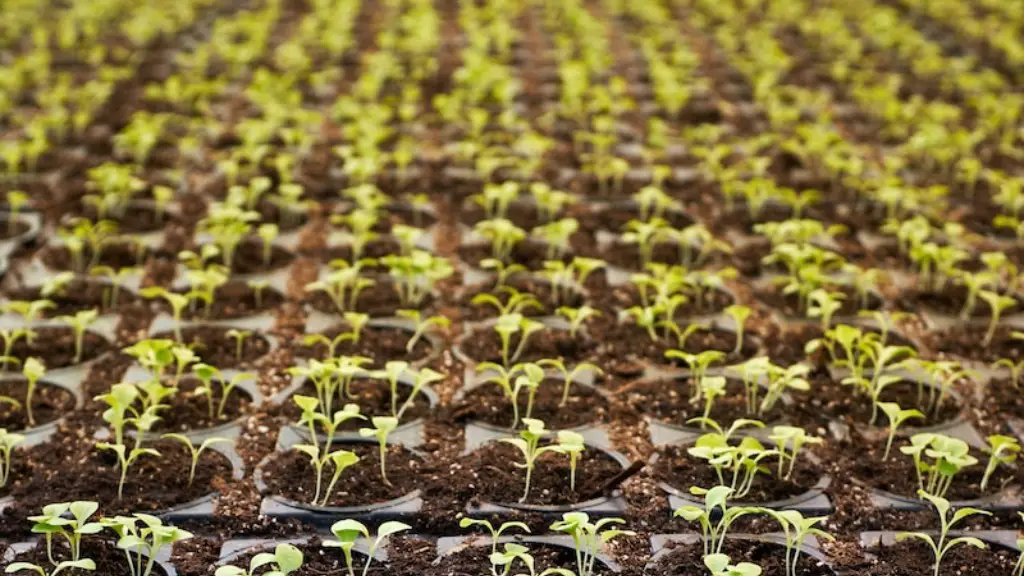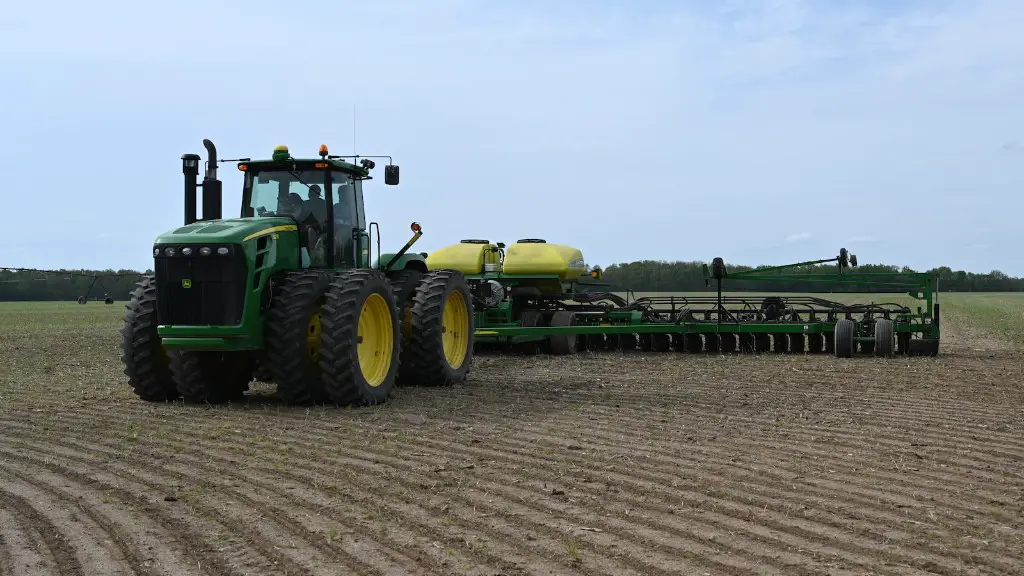The development of agriculture changed daily life by providing a reliable source of food. Agriculture allowed for the domestication of plants and animals, which led to the development of settled civilizations. Agriculture also allowed for the growth of cities and the rise of trade and commerce.
The development of agriculture thousands of years ago changed the way people lived their lives. Agriculture allowed people to settle in one place and to build communities. It also led to the development of different technologies like irrigation and crop rotation. Agriculture allowed people to produce more food, which led to population growth. It also allowed people to trade and to develop civilizations.
How did agriculture change life?
Domesticity is a key turning point in human history, as it allowed for the establishment of families and larger groups. This transition from a nomadic hunter-gatherer lifestyle to one that is dependent on foraging and hunting for survival was a key moment in our development as a species.
This was a time of great change for humans as they began to transition from hunting and gathering to farming. This allowed them to produce more food than they could actually eat, leading to extra food that some people didn’t have to spend their time gathering. This was a pivotal time in human history that led to many subsequent advances.
How did agricultural improvements transform daily life during Neolithic Revolution
One part of humankind turned its back on foraging and embraced agriculture The adoption of farming brought with it further transformations To tend their fields, people had to stop wandering and move into permanent villages, where they developed new tools and created pottery.
Farming allowed humans to domesticated plants and animals, which led to the development of civilizations. Agriculture allowed for the growth of cities and the rise of civilizations. Agriculture also allowed for the growth of food surpluses, which allowed for the development of trade and commerce.
The agricultural revolution had a variety of consequences for humans. It has been linked to everything from societal inequality—a result of humans’ increased dependence on the land and fears of scarcity—to a decline in nutrition and a rise in infectious diseases contracted from domesticated animals.
How did agriculture impact us?
Agriculture’s share of the overall US economy is around 54%. Agriculture, food, and related industries contributed roughly $1264 trillion to US gross domestic product (GDP) in 2021. The output of America’s farms contributed $1647 billion of this sum—about 07 percent of US GDP.
Agriculture is the leading source of pollution in many countries. Pesticides, fertilizers, and other toxic farm chemicals can poison fresh water, marine ecosystems, air, and soil. They also can remain in the environment for generations.
What are the benefits of agriculture in our daily lives?
Agriculture is the main source of food and fabric for the world. Different types of agricultural products are grown in different parts of the world, depending on the climate and soil conditions. Agricultural methods also vary from one part of the world to another.
In roughly 10,000 to 15,000 years, advances in agriculture have allowed the human population to become roughly 1000 times larger! Agriculture has had both positive and negative impacts on the environment. On the one hand, farmers have used complex tools to cultivate and irrigate their fields and to build settlements. This has resulted in a more efficient use of resources and has allowed for a greater level of food production. On the other hand, however, agricultural activity has also contributed to deforestation, soil erosion, and water pollution.
What impact does agriculture have on human society
Agriculture is the backbone of many economies and continues to play a vital role in social and economic development. The sector provides critical livelihoods for rural communities and is a major source of food security and nutrition. It also supports national economies through the production of raw materials, creates employment opportunities, and generates export earnings. Well-functioning agriculture markets are essential for achieving economic growth and poverty reduction.
The rise of Agriculture allowed for a more stable food supply which in turn lead to an increased life span for early man. With the surplus of goods that Agriculture provided, trade began to develop between different cultures. This also lead to people venturing into other fields such as crafts and religion. This eventually led to the development of new religions.
Why did agriculture change the lives of Neolithic humans?
Farming fundamentally altered the lives of Neolithic people because it allowed them to establish permanent communities. Before this, all human societies were nomadic hunters and gatherers. Farming let them build settled villages. This gave them a more reliable source of food and shelter, which allowed them to more easily raise families and support larger populations. It also allowed them to develop more complex social structures and to create art and other forms of culture.
The Agricultural Revolution of the 18th century led to advances in food production that improved diets and allowed for longer life spans. As population increased, the pool of workers for industry also grew. The Agricultural Revolution thus had a positive impact on the industrialization of Europe.
What were the 3 major results of the Agricultural Revolution
The Agricultural Revolution was a period of unprecedented increase in agricultural production in Britain. This was due to new agricultural practices such as crop rotation, selective breeding, and a more productive use of arable land. The Agricultural Revolution had a profound impact on British society, transforming the economy and leading to a dramatic increase in population.
The term agricultural revolution refers to the radical changes in agricultural methods that have occurred throughout history. These changes have had a profound impact on human society, resulting in the invention of the first cities, the development of industry, and a massive increase in the human population.
What are three impacts of agriculture?
Agriculture can have a significant impact on the environment, both positive and negative. On the positive side, agriculture can help to improve soil quality and contribute to climate change mitigation. On the negative side, agriculture can lead to soil erosion, water pollution, and deforestation.
There are many social benefits for farm families, including achievement and fulfilment. Seeing the effects on the people who spend time on the farm can be very rewarding. Making a difference in the lives of individuals can also be very satisfying. Helping typically excluded people to become more included can also be a great source of fulfilment.
Final Words
The development of agriculture changed daily life by making it possible to produce food on a large scale. This allowed for the development of cities and civilizations. Agriculture also led to the domestication of plants and animals, which changed the way people lived and interacted with the natural world.
The development of agriculture changed daily life by giving people a way to reliably produce food. This allowed for the development of civilizations, as people could settle in one place rather than moving around to find food. Agriculture also led to the domestication of plants and animals, which changed the way people lived and interacted with the natural world.





